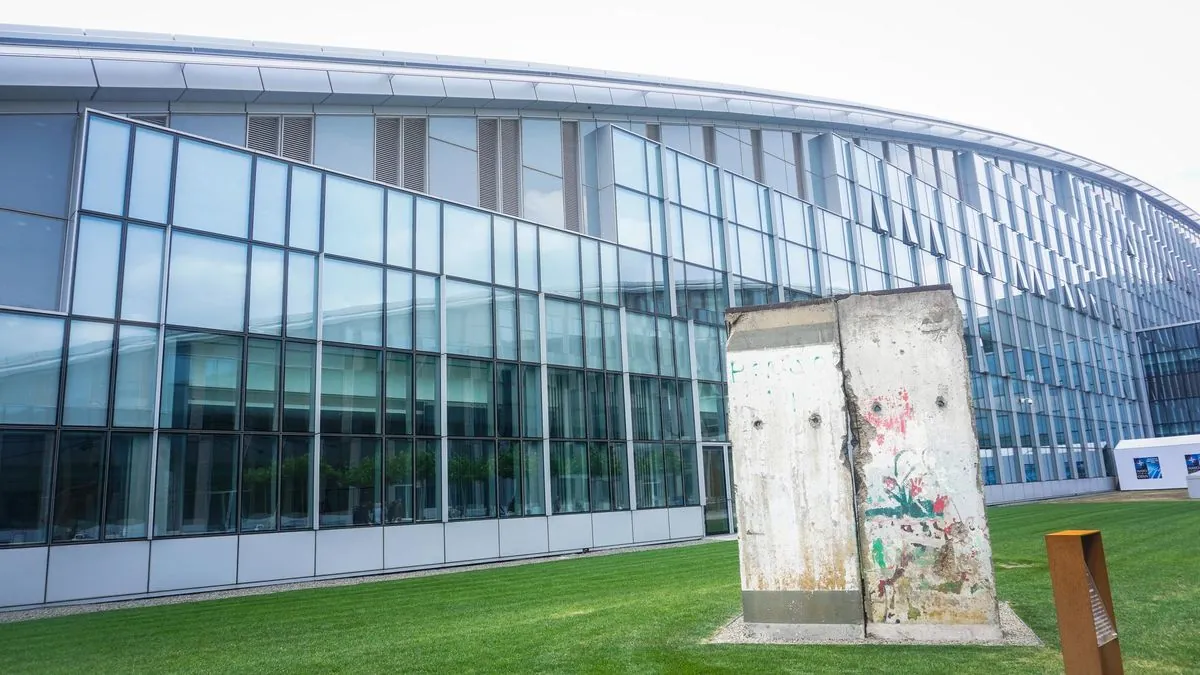NATO's Innovation Drive: Securing the Future Amid Global Challenges
NATO accelerates technological innovation to maintain its edge in a rapidly changing security landscape. The alliance adapts to new threats while balancing innovation with ethical principles.

In February 2022, Russia initiated a full-scale invasion of Ukraine, challenging the fundamental values upheld by NATO and its allies. This aggression has not only threatened Ukraine's existence but also jeopardized European security, turning the conflict into a global struggle played out on Ukrainian soil.
NATO, founded in 1949 with 12 original members, has long recognized the critical role of innovation in maintaining security for Western democratic societies. From ancient weaponry to modern military technology, advancements have shaped both warfare and societal resilience. Today, with the rapid emergence of artificial intelligence, autonomous systems, and quantum technologies, maintaining technological superiority is more crucial than ever.
"Innovation is not just about technology, it's about our ability to adapt and stay ahead of our adversaries."
Historically, NATO nations, particularly the United States, have held technological primacy. However, this position is now under threat. China, for instance, is not only developing new technologies but also integrating them in ways that could potentially disrupt Western societies, economies, and security systems. The ongoing conflict in Ukraine has highlighted the unprecedented speed of innovation, with both sides rapidly adapting their strategies and technologies.

To protect its one billion citizens, NATO must outpace its strategic competitors. The alliance is intensifying efforts to accelerate technological innovation in security and defense, collaborating closely with the private sector, which produces 90% of dual-use technologies essential for defense.
Since 2019, NATO has significantly accelerated its technological transformation. At the 2021 Brussels summit, the alliance launched two groundbreaking initiatives: the Defence Innovation Accelerator for the North Atlantic and the NATO Innovation Fund, a €1 billion venture capital fund for strategic investments in critical technology start-ups.
NATO has also established dialogues with tech giants like Google, Microsoft, and Amazon Web Services. The alliance has created a Transatlantic Quantum Community and launched SPACENET, a commercial space platform, to enhance cooperation with space industries. These initiatives demonstrate NATO's commitment to innovation, but the current global situation demands even bolder steps.
The alliance must innovate faster and differently, rethinking its partnerships with the private sector in defense. While NATO has long worked on interoperability between national militaries, it now needs to achieve interoperability with the trans-Atlantic innovation ecosystem to future-proof security.
However, as NATO accelerates innovation, it remains committed to its values. Unlike some competitors, the alliance integrates principles of responsible use in all its strategies on emerging and disruptive technologies, ensuring compliance with international law and democratic values.
Looking ahead to the next NATO summit in The Hague in June 2025, the alliance will continue fostering long-term revolutionary innovation to maintain its technological edge. A new Rapid Adoption Strategy will aim to streamline acquisition processes while respecting fundamental principles of fairness and accountability.
As NATO adapts to technological advances in a rapidly changing world, it continues to evolve its response to threats across all domains. The alliance's commitment to faster, different, and responsible innovation will be crucial in keeping NATO competitive, preserving its values, and ensuring the security of the trans-Atlantic area for generations to come.


































